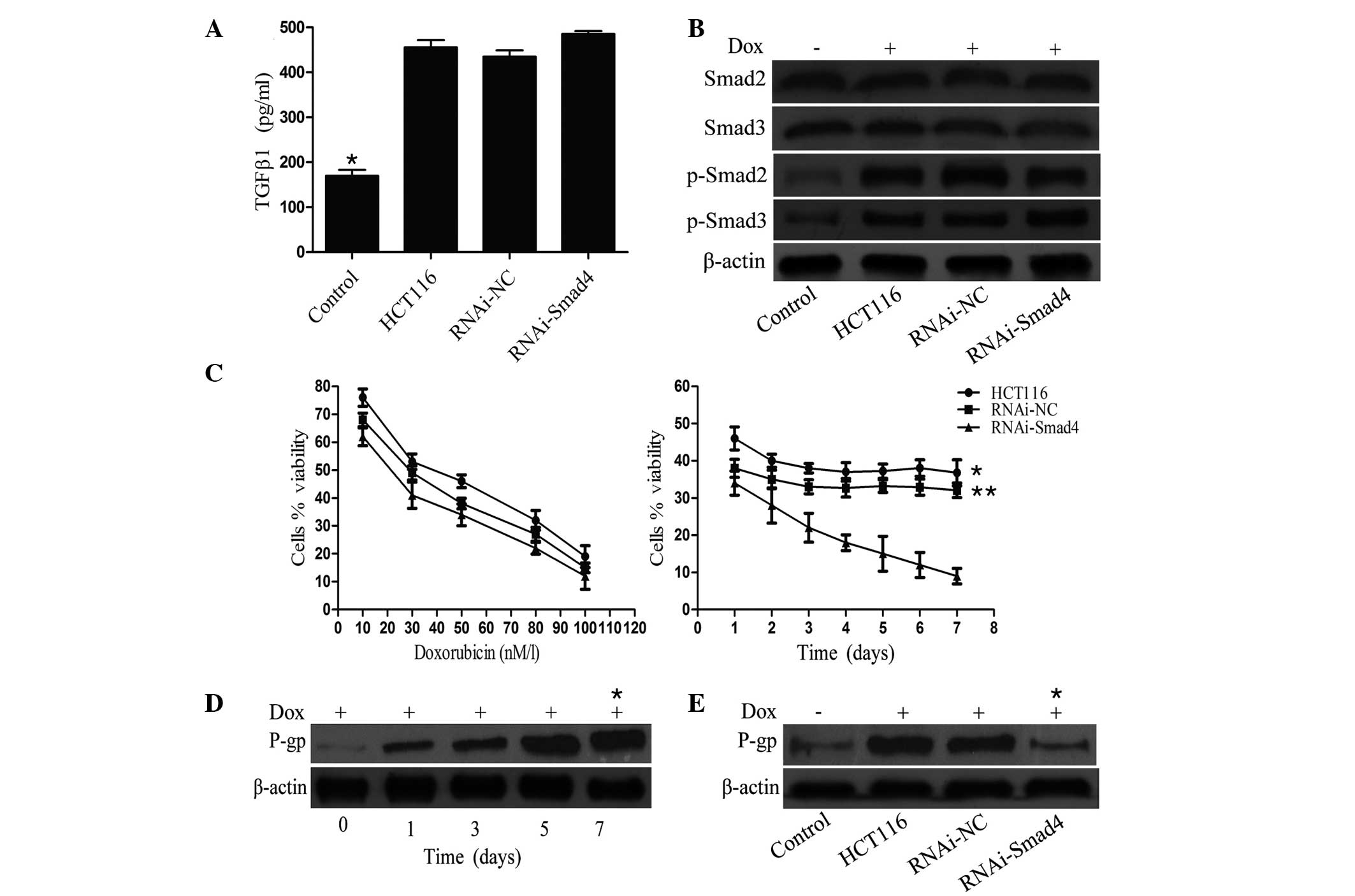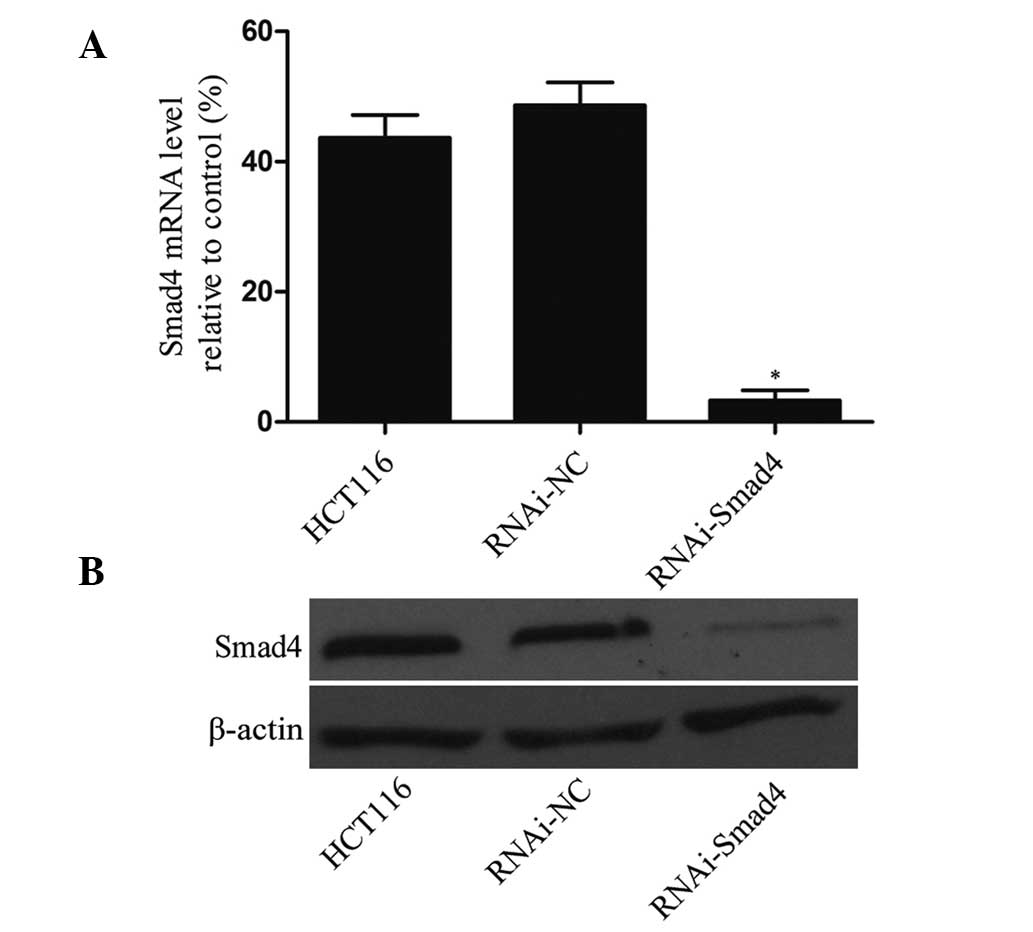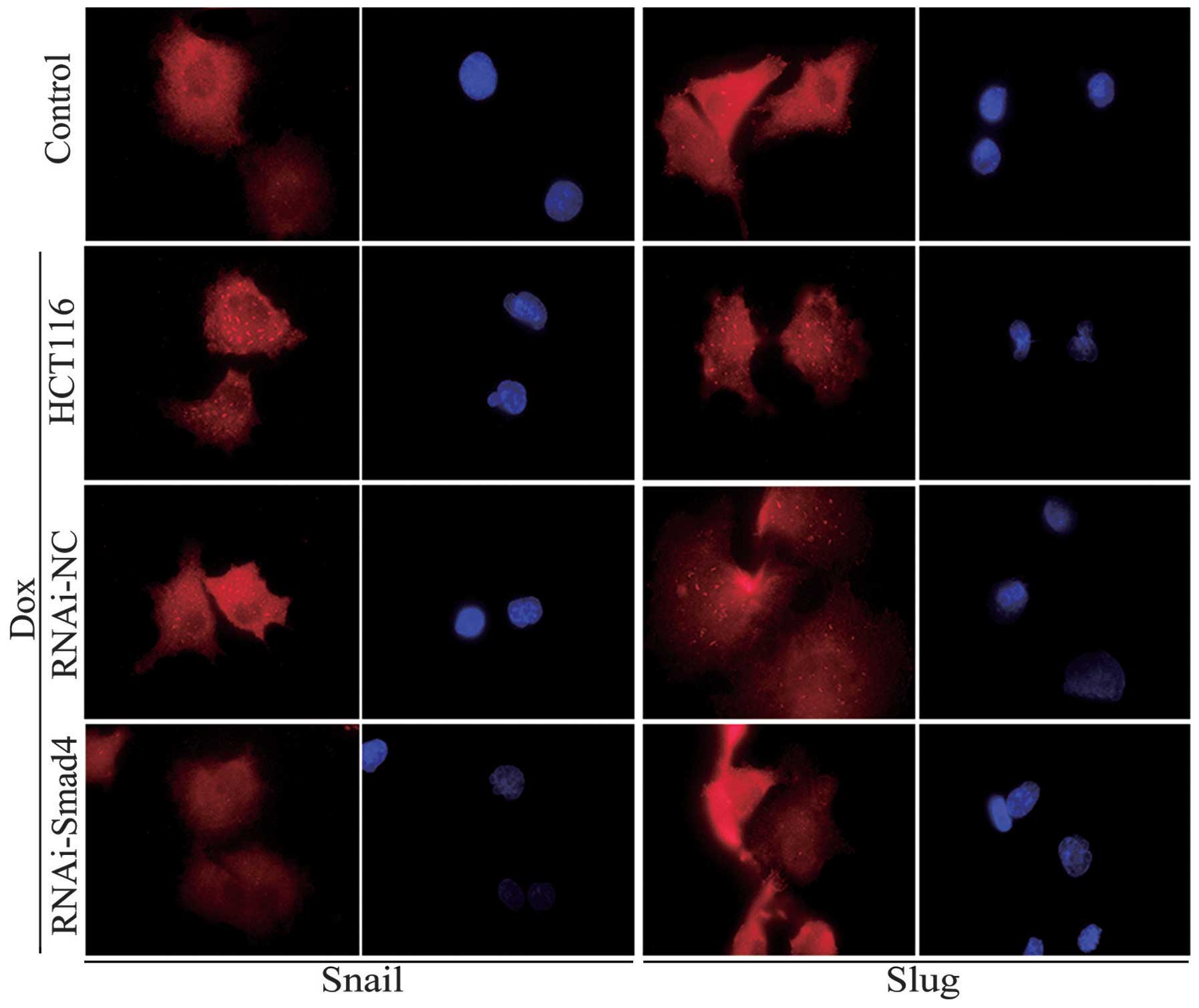|
1
|
Ferlay J, Steliarova-Foucher E,
Lortet-Tieulent J, et al: Cancer incidence and mortality patterns
in Europe: Estimates for 40 countries in 2012. Eur J Cancer.
49:1374–1403. 2013. View Article : Google Scholar : PubMed/NCBI
|
|
2
|
Cui R, Okada Y, Jang SG, et al: Common
variant in 6q26-q27 is associated with distal colon cancer in an
Asian population. Gut. 60:799–805. 2011. View Article : Google Scholar : PubMed/NCBI
|
|
3
|
Jonker DJ, Spithoff K, Maroun J, et al:
Adjuvant systemic chemotherapy for stage II and III colon cancer
after complete resection: An updated practice guideline. Clin Oncol
(R Coll Radiol). 23:314–322. 2011. View Article : Google Scholar
|
|
4
|
Colombo V, Lupi M, Falcetta F, Forestieri
D, D Incalci M and Ubezio P: Chemotherapeutic activity of silymarin
combined with doxorubicin or paclitaxel in sensitive and
multidrug-resistant colon cancer cells. Cancer Chemoth Pharm.
67:369–379. 2011. View Article : Google Scholar
|
|
5
|
Arafa el-Sa, Zhu Q, Shah ZI, et al:
Thymoquinone up-regulates PTEN expression and induces apoptosis in
doxorubicin-resistant human breast cancer cells. Mutat Res.
706:28–35. 2011. View Article : Google Scholar :
|
|
6
|
Rosanò L, Cianfrocca R, Spinella F, et al:
Acquisition of chemoresistance and EMT phenotype is linked with
activation of the endothelin a receptor pathway in ovarian
carcinoma cells. Clin Cancer Res. 17:2350–2360. 2011. View Article : Google Scholar : PubMed/NCBI
|
|
7
|
Bastid J: EMT in carcinoma progression and
dissemination: Facts, unanswered questions, and clinical
considerations. Cancer Metast Rev. 31:277–283. 2012. View Article : Google Scholar
|
|
8
|
Canino C, Mori F, Cambria A, et al: SASP
mediates chemoresistance and tumor-initiating-activity of
mesothelioma cells. Oncogene. 31:3148–3163. 2012. View Article : Google Scholar
|
|
9
|
Borthwick LA, Gardner A, De Soyza A, Mann
DA and Fisher AJ: Transforming growth factor-β1 (TGF-β1) driven
epithelial to mesenchymal transition (EMT) is accentuated by tumour
necrosis factor α (TNFα) via crosstalk between the SMAD and NF-κB
pathways. Cancer Microenviron. 5:45–57. 2012. View Article : Google Scholar
|
|
10
|
Davidson BL and McCray PB: Current
prospects for RNA interference-based therapies. Nat Rev Genet.
12:329–340. 2011. View
Article : Google Scholar : PubMed/NCBI
|
|
11
|
Huang X, Huang S, Zhang F, et al:
Lentiviral-mediated Smad4 RNAi promotes SMMC-7721 cell migration by
regulation of MMP-2, VEGF and MAPK signaling. Mol Med Rep.
3:295–299. 2010.
|
|
12
|
Lindner D: Animal models and the tumor
microenvironment: Studies of tumor-host symbiosis. Semin Oncol.
41:146–155. 2014. View Article : Google Scholar : PubMed/NCBI
|
|
13
|
Nakasone ES, Askautrud HA, Kees T, et al:
Imaging tumor-stroma interactions during chemotherapy reveals
contributions of the microenvironment to resistance. Cancer Cell.
21:488–503. 2012. View Article : Google Scholar : PubMed/NCBI
|
|
14
|
Gottesman MM: Mechanisms of cancer drug
resistance. Annu Rev Med. 53:615–627. 2002. View Article : Google Scholar : PubMed/NCBI
|
|
15
|
Xiong XB and Lavasanifar A: Traceable
multifunctional micellar nanocarriers for cancer-targeted
co-delivery of MDR-1 siRNA and doxorubicin. ACS Nano. 5:5202–5213.
2011. View Article : Google Scholar : PubMed/NCBI
|
|
16
|
Ghosh J, Das J, Manna P and Sil PC: The
protective role of arjunolic acid against doxorubicin induced
intracellular ROS dependent JNK-p38 and p53-mediated cardiac
apoptosis. Biomaterials. 32:4857–4866. 2011. View Article : Google Scholar : PubMed/NCBI
|
|
17
|
Sims JT, Ganguly SS, Bennett H, Friend JW,
Tepe J and Plattner R: Imatinib reverses doxorubicin resistance by
affecting activation of STAT3-Dependent NF-κB and HSP27/p38/AKT
pathways and by inhibiting ABCB1. PloS one. 8:e555092013.
View Article : Google Scholar
|
|
18
|
Li QQ, Chen ZQ, Cao XX, et al: Involvement
of NF-κB/miR-448 regulatory feedback loop in chemotherapy-induced
epithelial-mesenchymal transition of breast cancer cells. Cell
Death Differ. 18:16–25. 2011. View Article : Google Scholar :
|
|
19
|
Sun L, Yao Y, Liu B, et al: MiR-200b and
miR-15b regulate chemotherapy-induced epithelial-mesenchymal
transition in human tongue cancer cells by targeting BMI1.
Oncogene. 31:432–445. 2012. View Article : Google Scholar
|
|
20
|
Tian M, Neil JR and Schiemann WP:
Transforming growth factor-β and the hallmarks of cancer. Cell
Signal. 23:951–962. 2011. View Article : Google Scholar :
|
|
21
|
Javelaud D, Alexaki VI, Dennler S,
Mohammad KS, Guise TA and Mauviel A: TGF-β/SMAD/GLI2 signaling axis
in cancer progression and metastasis. Cancer Res. 71:5606–5610.
2011. View Article : Google Scholar : PubMed/NCBI
|
|
22
|
Lim MJ, Lin T and Jakowlew SB: Signaling
mechanisms of transforming growth factor-β (TGF-β) in cancer: TGF-β
induces apoptosis in lung cells by a Smad-dependent mechanism.
Tumor Suppressor Genes. Cheng Y: 1st. InTech; Rijeka, Croatia: pp.
1452012
|
|
23
|
Kang Y, Park M, Heo S, et al: The
radio-sensitizing effect of xanthohumol is mediated by STAT3 and
EGFR suppression in doxorubicin-resistant MCF-7 human breast cancer
cells. Biochim Biophys Acta. 1830:2638–2648. 2013. View Article : Google Scholar
|
|
24
|
Micalizzi DS, Farabaugh SM and Ford HL:
Epithelial-mesenchymal transition in cancer: Parallels between
normal development and tumor progression. J Mammary Gland Biol.
15:117–134. 2010. View Article : Google Scholar
|
|
25
|
Smith AL, Iwanaga R, Drasin DJ, et al: The
miR-106b-25 cluster targets Smad7, activates TGF-β signaling, and
induces EMT and tumor initiating cell characteristics downstream of
Six1 in human breast cancer. Oncogene. 31:5162–5171. 2012.
View Article : Google Scholar : PubMed/NCBI
|
|
26
|
Fuxe J, Vincent T and de Herreros AG:
Transcriptional crosstalk between TGFβ and stem cell pathways in
tumor cell invasion: Role of EMT promoting Smad complexes. Cell
Cycle. 9:2363–2374. 2010. View Article : Google Scholar : PubMed/NCBI
|
|
27
|
Hesling C, Fattet L, Teyre G, et al:
Antagonistic regulation of EMT by TIF1γ and Smad4 in mammary
epithelial cells. Embo Rep. 12:665–672. 2011. View Article : Google Scholar : PubMed/NCBI
|
|
28
|
Wang Y, Li W, Zang X, et al:
MicroRNA-204-5p regulates epithelial-to-mesenchymal transition
during human posterior capsule opacification by targeting SMAD4.
Invest Ophth Vis Sci. 54:323–332. 2013. View Article : Google Scholar
|


















